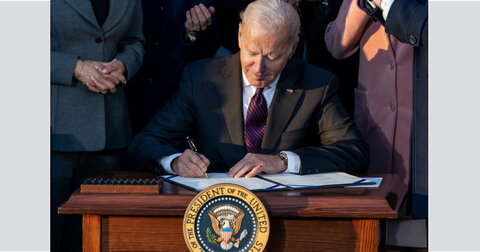Townships Rolling In Dough, Spending On ‘Nice To Haves’ Not Just ‘Need To Haves’
Scio Township will receive $1.5 million in state taxpayer money to expand and lengthen a local trail, coming on top of a 10-year property tax increase approved by local voters for the same purpose in August 2020. The Washtenaw County community is also projected to receive $1.9 million from the federal government through the American Rescue Plan.
The tax increase voters approved in 2020 will add 0.65 mills to property tax bills in each of the next 10 years, bringing in $765,000 during its first year. At an Oct. 12 township Board of Trustees meeting, State Rep. Donna Lasinski, a Democrat who live in the township, said she had secured an additional $1.5 million from the state for the project.
Will Hathaway, Scio Township supervisor said: “The township was very pleased to receive $1.5 million in funding from the state of Michigan for the pedestrian improvements. Half of the funding from the state will combine with the local millage and grant funds to extend the path north toward an eventual connection with the Border-to-Border Trail. The other $750,000 of the state funding will be used to improve pedestrian safety of the existing overpass of I-94.”
Hathaway stated, "The total cost to extend the local trail to the B2B trail to the north is $5.92 million. Another $1.8 million in local property tax revenue over three years will pay for other projects. The total cost of related pedestrian safety improvements for an I-94 overpass is still being worked out, with the cost estimated to be somewhere between $1 million and $2 million. This part of the project will be done in partnership with MDOT and the Washtenaw County Road Commission."
The 2021-22 state budget includes many millions in so-called enhancement grants for this kind of non-essential spending by local government, universities, and nonprofits across the state. James Hohman, director of fiscal policy at Mackinac Center for Public Policy, says it should be up to townships to raise money for optional extras by using local tax dollars or voluntary contributions.
Hohman said, “Each of these items are meant to demonstrate that a state legislator can bend the normal budgeting process to deliver cash to their district.”
Michigan Capitol Confidential is the news source produced by the Mackinac Center for Public Policy. Michigan Capitol Confidential reports with a free-market news perspective.

